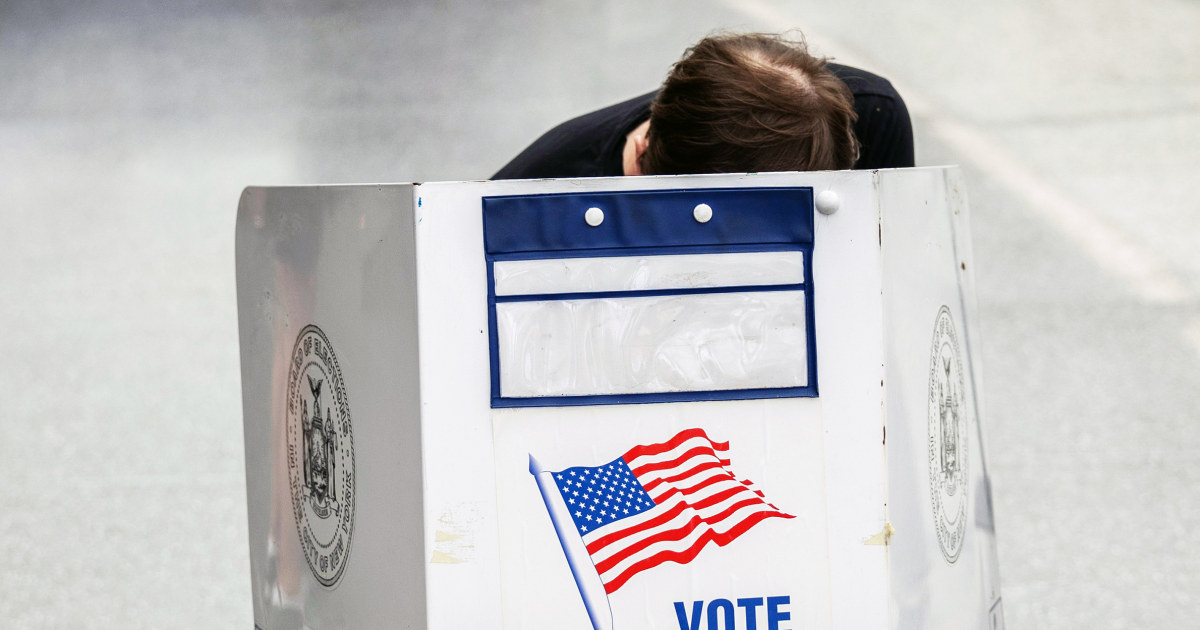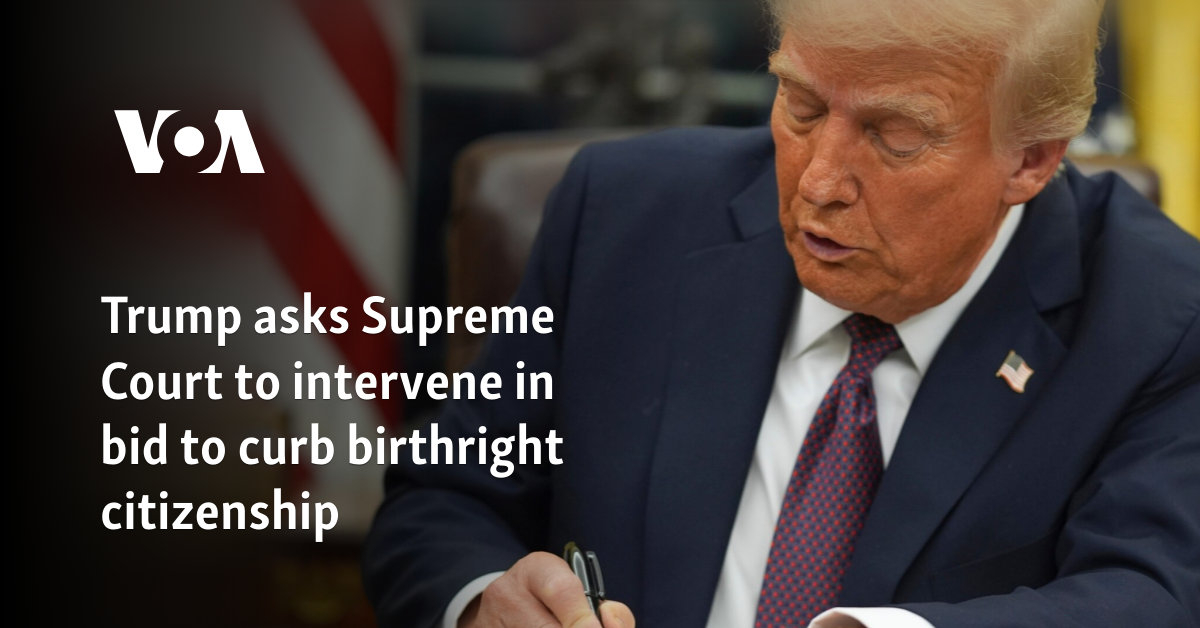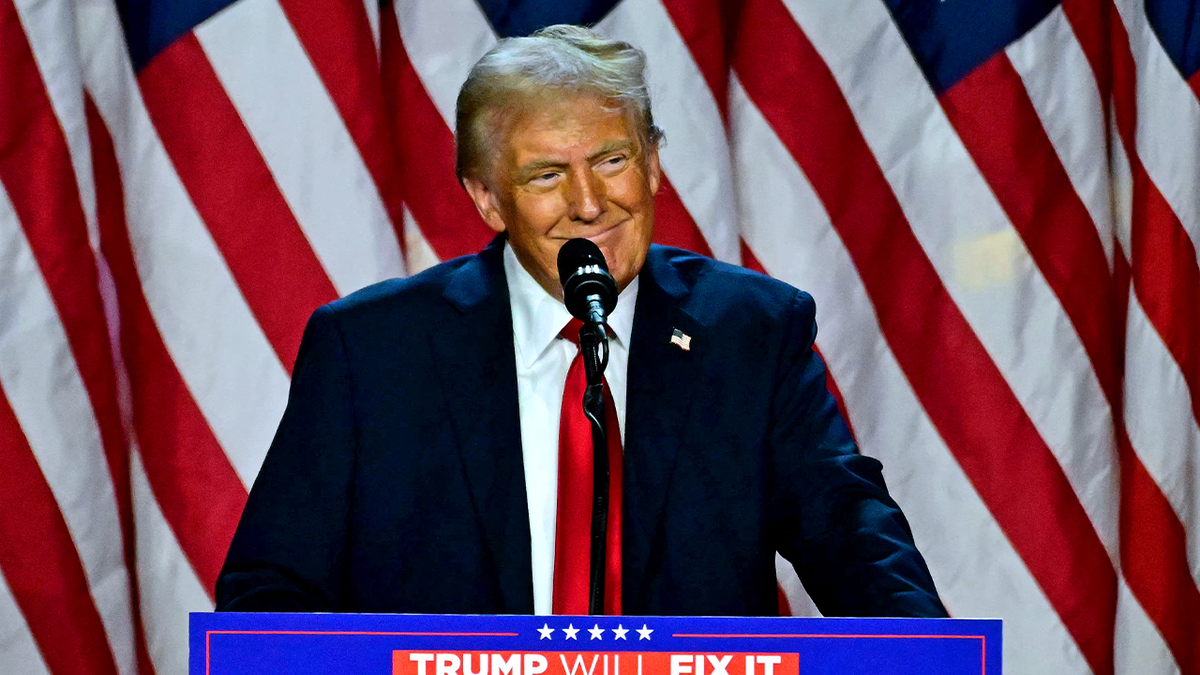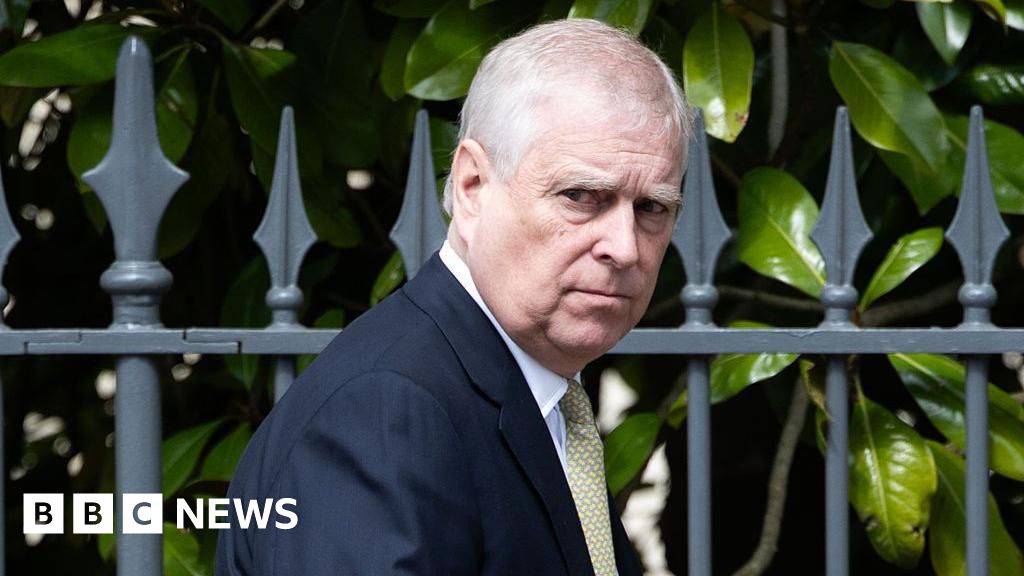Trump Approves Use of National Guard as Immigration Judges in Florida Detention Center
#immigration #national_guard #trump #deportation #supreme_court
Trump Approves Use of National Guard as Immigration Judges in Florida Detention Center
Governor Ron DeSantis of Florida has been pushing for federal approval to use National Guard members as immigration judges for months. And now, President Donald Trump has finally given the green light for this controversial measure to be implemented at a detention center in Tampa Bay.
Expanding Deportation Efforts in Democratic Cities
This decision comes in the wake of Trump's previous order for Immigration and Customs Enforcement (ICE) officers to expand deportation efforts in Democratic cities. The president has been vocal about his immigration policies and has been determined to follow through on his campaign promise to crack down on illegal immigration.
In a recent tweet, Trump called for ICE officers to "do all in their power" to achieve mass deportations in these cities. This has caused an uproar among Democrats, with some even accusing the president of using immigration as a political tool.
Deportations of Long-time US Residents
The Trump administration's aggressive approach to immigration has also resulted in the deportation of long-time US residents. Recently, a woman who had lived in the country for 47 years, married a US citizen, and raised their daughter was deported from her home in New Orleans. This has sparked outrage and raised questions about the fairness of the deportation process.
Supreme Court Rulings in Favor of Trump's Immigration Policies
Despite some pushback from lower courts, the Supreme Court has shown its support for Trump's immigration policies. In a recent ruling, the court limited judges' power to block Trump's executive order to end birthright citizenship. This has been seen as a victory for the president and his administration.
Working on a 'Temporary Pass' for Immigrants in Certain Industries
In a recent interview, Trump mentioned that the administration is working on developing a 'temporary pass' for immigrants who work in certain industries. This would be a major shift in the current immigration system and could provide relief for many immigrants who are currently facing deportation.
Florida's National Guard as Immigration Judges
With Trump's approval, Florida's National Guard will now serve as immigration judges at a detention center in Tampa Bay. This is a first for the state and could set a precedent for other states to follow suit.
While some may see this as a controversial decision, others argue that it is necessary to address the overwhelming number of immigration cases and expedite the deportation process. Only time will tell the effectiveness of this measure and its impact on the immigration system in the US.
About the People Mentioned
Ron DeSantis
Ron DeSantis is a prominent conservative Republican politician who has served as the 46th Governor of Florida since January 8, 2019. Born on September 14, 1978, in Jacksonville, Florida, DeSantis grew up in Dunedin with blue-collar roots. He attended Yale University, where he graduated with honors and captained the varsity baseball team. He later earned his law degree from Harvard Law School, earning a commission in the U.S. Navy as a Judge Advocate General (JAG) officer during his time there[1][2][3]. DeSantis's military career included deployments to Iraq, where he supported SEAL missions in Fallujah and Ramadi, earning the Bronze Star Medal for meritorious service[1][2]. After his military service, he worked as a federal prosecutor, focusing on child predator cases. DeSantis was elected to the U.S. House of Representatives in 2012, representing Florida's Sixth District until 2018. He gained recognition for his fiscal conservatism and alignment with the Tea Party movement[2][3]. As Governor of Florida, DeSantis has been at the forefront of several contentious issues, including COVID-19 policies, education reform, and voter fraud concerns. Notably, he lifted pandemic restrictions early, while implementing measures to protect vulnerable populations[3]. His administration has also focused on expanding school choice, promoting public safety, and investing in environmental conservation[4]. In 2023, DeSantis announced his candidacy for the 2024 U.S. presidential election but suspended his campaign in January 2024, endorsing Donald Trump[2]. His tenure as governor continues to shape Florida's political landscape and influence national discussions on conservative policies. DeSantis is married to Casey DeSantis, and they have three children together[1][4].
About the Organizations Mentioned
National Guard
## Overview The National Guard is a unique component of the United States Armed Forces, serving as both a state and federal military reserve. It is divided into the Army National Guard and the Air National Guard, each functioning as the primary combat reserve for the U.S. Army and Air Force, respectively[1][5]. Unlike other military reserves, the National Guard can be activated by state governors for domestic emergencies—such as natural disasters, civil unrest, or public health crises—while also being deployable overseas by the president during national emergencies or conflicts[1][2]. This dual role makes it a critical bridge between civilian life and military service, with most members serving part-time while maintaining civilian careers or education[1][7]. ## History The National Guard traces its origins to 1636 in Salem, Massachusetts, making it the oldest military organization in the U.S.[4][6]. Initially formed as local militias for community defense, it evolved into a structured reserve force integral to every major U.S. conflict since the nation’s founding[6]. The modern National Guard was formally established by the Militia Act of 1903, which standardized training and equipment across states and created a federal role for the Guard[4]. ## Key Achievements The National Guard has been pivotal in both domestic and international crises. Domestically, Guard units have responded to hurricanes, wildfires, the COVID-19 pandemic, and civil disturbances, providing essential support to local authorities[2][6]. Internationally, Guard units have deployed to conflicts in Afghanistan, Iraq, and the Balkans, as well as peacekeeping and training missions worldwide[2][5]. The Guard’s State Partnership Program also fosters military cooperation with over 100 nations, enhancing global security partnerships[5]. ## Current Status and Notable Aspects Today, the National Guard comprises approximately 430,000 members across all 50 states, Washington, D.C., and U.S. territories[1][6]. It is overs
Immigration and Customs Enforcement
**Immigration and Customs Enforcement (ICE)** is a federal law enforcement agency under the U.S. Department of Homeland Security (DHS). Established by the Homeland Security Act of 2002, ICE was created in response to the 9/11 attacks to enhance national security and protect public safety. The agency's primary mission is to enforce federal laws related to customs, trade, and immigration, focusing on cross-border crime and illegal immigration[1][2][3]. **History and Structure:** ICE was formed by merging the U.S. Customs Service and the Immigration and Naturalization Service. It operates with over 20,000 staff across more than 400 global offices, with an annual budget of approximately $8 billion[3]. The agency is structured into several key directorates, including **Enforcement and Removal Operations (ERO)**, which handles immigrant detention and deportation, and **Homeland Security Investigations (HSI)**, which investigates transnational crimes[1][2]. **Key Functions and Achievements:** ICE is known for its immigration enforcement efforts, particularly in interior regions of the U.S. It conducts investigations into human trafficking, terrorism, and other transnational crimes. Despite controversy over policies like family separation and detention conditions, ICE has made significant strides in combating illegal activities and protecting national security[4][6]. **Current Status and Notable Aspects:** Today, ICE continues to face challenges and controversy, particularly regarding its enforcement practices and impact on immigrant communities. The agency's actions can have profound effects on local economies and social services, as fear of ICE may deter undocumented immigrants from accessing essential services[6]. Despite these challenges, ICE remains a crucial component of U.S. immigration policy, working to balance enforcement with humanitarian concerns.
Democrats
The **Democratic Party** is one of the two major political parties in the United States, widely recognized as a liberal and progressive organization that advocates for social and economic equality, civil rights, environmental protection, and worker rights. It generally supports stronger government intervention in the economy and social welfare programs such as Medicaid and food aid, funded through progressive taxation[1][3]. Founded in 1848 with the creation of the Democratic National Committee (DNC), it is the oldest continuing political party and party committee in the U.S.[2]. The **Democratic National Committee (DNC)** is the central governing body, overseeing campaign activities, party organization, and the Democratic National Convention. It coordinates efforts across all 57 states and territories, supporting local and state party organizations to elect Democrats at every level of government[1][2]. The current DNC chair as of 2025 is Ken Martin[1][2]. Historically, the party has undergone significant transformations, evolving from its roots as the Jacksonian Party to its current identity emphasizing progressive policies and social justice[3]. The party is known for using the color blue as its symbol since the 2000 presidential election[3]. It has pioneered civil rights legislation and expanded social safety nets, shaping much of modern American social policy. In recent years, the Democratic Party has focused on renewal efforts to address changing public expectations and declining support among certain voter groups. This involves reevaluating policies and strategies to build a sustainable majority amid rapid social and technological change[4]. It also actively fights to protect democratic institutions and voting rights, coordinating a broad coalition of organizations to defend against anti-democratic threats[6]. Currently, the party continues to mobilize grassroots voters and organize campaigns across all levels, aiming to secure electoral victories and promote a fairer, more equal future for Americans—efforts often highlighted in business and technology news for their impact on policy and governance[5].
ICE
**Immigration and Customs Enforcement (ICE)** is a federal law enforcement agency under the U.S. Department of Homeland Security (DHS), established in 2003 following the Homeland Security Act of 2002, which reorganized existing agencies post-9/11 to enhance national security[1][2]. ICE’s core mission is to protect the United States by enforcing immigration laws, conducting criminal investigations, and preserving public safety. ICE operates primarily through two major divisions: **Homeland Security Investigations (HSI)** and **Enforcement and Removal Operations (ERO)**. HSI focuses on investigating and disrupting transnational criminal organizations involved in customs violations, human trafficking, terrorism, and smuggling. ERO is responsible for the apprehension, detention, and deportation of individuals unlawfully present in the U.S., operating detention facilities and managing removal procedures[2]. ICE’s international reach is managed by the Office of International Affairs (OIA), a key overseas investigative arm coordinating with foreign governments to combat cross-border crime, such as arms smuggling, forced labor, and immigration fraud. OIA supports intelligence gathering, training, treaty implementation, and facilitates global cooperation to preempt threats before they reach U.S. borders[3]. With a workforce exceeding 20,000 employees across more than 400 offices worldwide and an annual budget of about $8 billion, ICE plays a pivotal role in U.S. homeland security[1]. Its activities, especially those involving immigration enforcement and detention, have made it a highly visible and sometimes controversial agency in public discourse, often referred to colloquially in Spanish as "la migra"[2]. Notable achievements include disrupting large-scale criminal networks internationally and supporting the enforcement of over 400 federal statutes concerning customs, immigration, and terrorism prevention. ICE’s dynamic operational scope—spanning law enforcement, international diplomacy, and legal administration—makes it a critical component of U.S. efforts to maintain national security and uphold the rule of law[1][2][
Supreme Court
The **Supreme Court of the United States**, commonly referred to as SCOTUS, is the highest court in the U.S. federal judiciary. Established by Article III of the U.S. Constitution, it plays a pivotal role in interpreting the Constitution and federal laws, ensuring their alignment with the founding document. ## Organization and History Founded in 1789, the Supreme Court initially consisted of a Chief Justice and five Associate Justices. Over time, the number of justices has fluctuated, settling at nine in 1869[4]. The Court's primary function is to adjudicate cases involving federal law and the Constitution, with the power to review and overturn decisions from lower courts[1][6]. It also has original jurisdiction in cases involving ambassadors, consuls, and disputes between states[1]. ## Key Achievements One of the Supreme Court's most significant achievements is the establishment of judicial review through the landmark case **Marbury v. Madison** in 1803. This decision allowed the Court to invalidate laws deemed unconstitutional, setting a precedent for its role in checking the legislative and executive branches[1][2]. ## Current Status Today, the Supreme Court continues to play a crucial role in shaping U.S. law and policy. It meets annually from October to June or July, reviewing thousands of petitions and deciding around 80 cases each year[1][2]. The Court's decisions often have profound impacts on business and technology, influencing regulatory environments and legal frameworks. ## Notable Aspects - **Independence**: Justices are appointed for life, ensuring the Court's independence from political pressures. - **Influence on Business and Technology**: Supreme Court rulings can significantly impact business practices and technological innovation by clarifying legal standards and regulatory frameworks. - **Symbolism**: The Court is symbolically important, with its motto "Equal Justice Under Law" reflecting its commitment to fairness and impartiality[3].
















